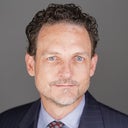Is There Any Dr. in Atlanta Who Does the Laser Resurfacing to Treat Undereye Festoons?
Is There Any Dr. in Atlanta Who Does the Laser Resurfacing to Treat Undereye Festoons?
Is There Any Dr. in Atlanta Who Does the Laser Resurfacing to Treat Undereye Festoons?






What’s trending? Who’s turning heads? Which TikTok myths need busting? We’ve got you. No fluff, no gatekeeping—just real talk. Get our free, unfiltered newsletter.